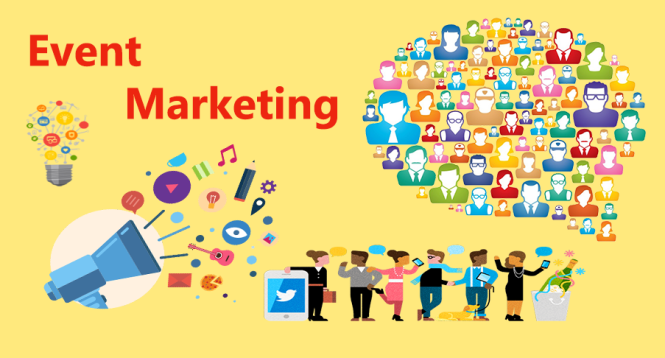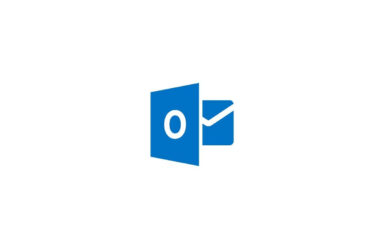Everyone’s well aware of the adoption rates on social networks and online communities. There are plenty of ways to go about event marketing & it varies depending on the position you hold for that particular event. When we consider events, promotion is very important whether the event is in person or remotely. However, it is a rare occasion that an event sells by itself so that’s the reason to have a clear strategy that leads to success
The following event marketing guide will provide an in-depth explanation of what is event marketing. How to create a good strategy that will help to uplift the event.
Without further delay, let us begin with the Event Marketing Strategies – The 2023 Guide What is Event Marketing?
The majority of organizations do spend heavily on events while allocating around 30% of the brand budget to organize events that will lead to enhance Brand awareness. From a theoretical perspective, event marketing is about using multiple techniques across different channels to publicize & reach the target audience.
Why do Companies get involved in Event Marketing?
It is quite evident that everyone is moving towards a digital world & majority of the marketers do agree that live events and stories provide a wonderful opportunity to form connections in a digital space. Some do feel that event marketing is the most effective marketing channel.
Companies also believe in the strength of organizing live events while strategically planning to invest in them for the foreseeable future. Moreover, event marketing has evolved to take place virtually which allows several companies to organize it by utilizing cheaper methods.
Different Types of Event Marketing
While executing event marketing, it is important to have a promotional plan in place & knowing to market effectively. Some companies do tend to organize one particular event but others do get involved to organize a series of events depending on the budget they allocate. An essential aspect of your event marketing strategy should include capturing high-quality visuals of your event. For this, understanding the event photography costs and options is critical. Whether you’re organizing a single event or a series of events, professional photography can significantly enhance your brand’s image and the impact of your marketing efforts. However, it is critical to have a manageable plan to organize a successful event.
• Website
• EMail Marketing
• Social Media Marketing
• Crowdfunding
• SEOs
1. Website
The reason why you need to have an event website or a platform to register is because it can be the main touchpoint for consumers to get to know about the event. Having said that, the website needs to contain key information to attract consumers to register. You can make sure that the website includes cookies which would help you to track the visitor’s activities on the website. If needed, you can modify the registration process with the advanced scheme of payment methods.
However, you do have the option on the type of website you can create for the event such as:
● Marketing website
● Registration website
The significant difference between a Marketing website is that it helps out while you are organizing a complex series of events as opposed to a Registration website is more of executing a single event. For any kind of event, the website should have the following information:
Cost, Location, Date, Time, CTA, Registration form
2. EMail Marketing
EMail Marketing is quite important to promote your event. There are plenty of softwares & tools which enable you to generate automated emails to a selected number of customers but you should keep in mind not to spam your customers with plenty of emails but rather to send a selected amount of emails with an eye-catching subject.
Most Companies use email marketing to promote their events but sometimes Marketers do struggle to get consumers engaged to open the mail & check the content.
The top 3 tips that can be followed for email Marketing at Events:
● Use email marketing software to schedule while reviewing it easily & updating the email list accordingly
● Make sure your emails do follow a similar format so there’s enough integration with the brand
● While sending across emails, try to additionally send “thank you” or “confirmation” emails
3. Social Media Marketing
The most popular platforms to promote are:
Millennials & Gen Z use social media quite a lot compared to other generations. Moreover, they are quite interested & updated with the events that are happening around, also as per a website states that the average smartphone user glances at their phone 300+ times a day. The following are three suggestions that can be provided on the steps to follow while promoting on social media:
● Use of Hashtags
Hashtags are easy for you to track your event across platforms & make sure that you encourage your partners to use them to publicize it. While proceeding with a hashtag, make sure that it is relevant to the topic & attractive or easy to remember which will allow them not to forget
● Influencers
Social Media influencers play a major role to communicate the brand message through the number of followers they have on a particular platform. Hence, instead of going through television which is expensive, we can reach our target audience through influencers. Moreover, through their content, consumers feel engaged & quite attentive to the event
● Interaction & frequent posts
Interaction is very important because usually consumers request information instantly over the comments section & they do require us to reply immediately to clarify their queries. Furthermore, we have to be relevant by making sure that we remind our consumers of the event by frequently posting on whether it is a countdown, activities at the event, etc…
Event Marketing Strategy
● Know your Target Audience
The important aspect to consider is knowing your target audience. While understanding your target audience, it is extremely important to define the objectives of the event such as:
• Increase overall Corporate Brand awareness
• Attempt to sell more tickets to drive revenue
• Create opportunities to sell more of your products during the event
When we consider the real-life example, if your objective was to sell a higher number of tickets & it is a movie festival then your target audience would be the loyal fanbase for the movie. Moreover, it would be better if you understand the needs & attitudes of your target audience which will enable you to execute an effective event marketing strategy. Furthermore, budgets do determine what events you plan and the type of promotion that you initiate. As mentioned before, events do help to improve morale & overall revenue for the organization
● Event Timeline
When we execute event marketing, it is important to understand that time is a key factor which needs to be given utmost priority because the marketing efforts & channels need to be altered or changed as the event date gets closer. To further elaborate, we can divide event marketing into 4 stages which represent the processes that need to be followed while organizing an event:
● Pre-Registration – the main objective of Pre-registration is to create maximum level of hype before the event because at this moment, we haven’t opened up for registrations yet. While creating the hype at the beginning, we can make sure to give them the option of early bird registration through a discounted price that will enable more consumers to register
● Launch phase – During this stage, we will work along with media, influencers, event partners to enhance the brand presence & ways how we can further elevate the awareness for the event
● Engagement activity – From the launch phase to the End of registration, we have to make sure that the consumers are engaged & excited about the event which will help to not reduce the buzz by making them feel involved
● End of Registration – This is the final phase that we need to do the maximum, to make sure that the tickets are sold & figuring out ways to increase the registrations
● Paid promotions
It is comparatively easier to use free promotions but paid promotions will give you the exact level of reach. Also, it depends on the funds that you possess because charitable organizations do not engage heavily in paid promotions. After all, the budget is quite limited but if you want to reach a wider range of audience then paid promotion will be a better option.
Hence, you can ask yourself certain questions in terms of the budget, the amount of reach you are planning to get, the level of frequency, etc…
● Event Partners
Event partners or sponsors are an important aspect because you are not only doing marketing to receive more audience but also to get potential sponsors for the event. When approaching sponsors, it is important to outline the number of benefits they will receive & approaching them with a project proposal which would allow you to convince them better since you are well prepared through attractive sponsorship packages
How to measure the Success of an Event?
Firstly the event must meet Company’s objectives or goals which allows for it to generate ROI. To measure the success of an event, we can look into some of the factors such as Press releases, Attendance, Revenue, Event questionnaires, Leads, etc…
● Company’s objectives
Any company does not organize an event for the sake of it but rather they tend to plan and evaluate whether the event will achieve a minimal part of the Company’s objectives. Because only then people can relate to the brand of the Company eg: An airline company can look into the aspects of low-cost aviation so they can conduct seminars or workshops on how they execute low-cost aviation but they cannot present that idea during a music festival Hence, it is important that the event is relatable to the vision of the Company & aligns with their objectives
● Press releases
Press coverage is necessary especially if you are engaging in a mega event while making sure that we receive the maximum amount of traffic on social media platforms through website cookies, clicks, and conversions.
● Attendance
Usually, it is a common factor for individuals to measure the success of the event by comparing it with the number of people who have graced the event. If the hype is high then there’s an expectation that more people will be visiting the event
● Revenue
The monetary impact from an event plays a major role because you do not necessarily look into the ticket sales but rather the sales made from food & entertainment stalls which certainly encourages more sponsors to come on board when it’s being executed the next time
● Event Questionnaires
The questionnaires help to share consumers’ level of satisfaction & we can create a sense of pattern on the type of answers the consumers have given. So it can be judged whether the answers are diplomatic or straightforward.
Financial Statement of an Event
To get a clear indication of the financial statement from an event, you need to understand & evaluate the benefits as well as the costs of executing an event. Instead of only adding up the direct costs & comparing them with the direct benefits , it is important to identify unexpected costs that could arise during a particular situation. To effectively understand the financial statement of an event, we have highlighted the below key points:
1. Event Benefits
It is highly necessary to understand the key benefits that can be derived through a particular event. Because from a company point of view, where they focus mainly on the cost of goods & day to day expenses. Revenue is one of the benefits of an event such as ticket sales, registrations, donations, etc… However it varies with the type of event that is being organized
Additional Revenue is also another aspect for you to get more benefits such as Stalls, demos, and membership renewal. Another benefit to receive while organizing an event is to gain brand equity which we do not receive monetary value immediately but in the foreseeable future, it will benefit the overall brand through positive word of mouth
2. Event Costs
Event expenses account for a ¼ of a marketing budget but the total costs accommodate in giving a closer analysis of a granular level. There are different types of costs which will be explained below:
● Direct Costs – are very straightforward & something relatable to the event organizers. Examples of direct costs are Venue, refreshments, entertainment, transport, etc…
● Indirect Costs – provides a complete overview of the spending to execute an event. Since it includes the overheads, event-related expenses in terms of labor hours
● Opportunity Costs – Events certainly do have an opportunity cost because a company utilizes materials, resources, and labor allocated for a particular event which they can spend on some other activity to further enhance the brand. The next best alternative that can provide a good value as opposed to executing an event is the opportunity cost.
Event Marketing Software
There are marketers who follow event marketing software which enables them to organize an event more comprehensively. Event marketing software has multiple tools such as Email marketing, data management, and processes that will allow you to have a smooth registration especially when there are large number of audience attending the event
Digital platforms have taken most of the attention, especially after the changes happening in the environment because of Covid, wildfires, flood, etc…
This makes people evolve & organize events online to make sure that they complete their agreed requirements. However, there are some challenges in organizing events online, since the engagement & interaction is comparatively less as opposed to a physical event. But given the current circumstances, people are looking for ways to improve the interaction of an event organized through virtual methods.
Hence to receive success while organizing a virtual event, people look for methods to integrate & automation comes into play that certainly allows a smooth flow of communication to take place.
Conclusion
Through the use of event management software, it will be easier for the team to collaborate with the use of technology… Moreover, the data is readily available because all are stored at one location which gives you plenty of visibility, especially while doing comparisons. Decision-making will become a lot easier because the data provides a clear understanding of the current situation
Furthermore, to organize a successful event, the following strategies can be followed:
● Understanding the objectives
● Prepare a plan along with the budget
● Execute promotional methods in advance
● Use event marketing software to automate the processes
● Increase multiple ways to allow more people to register early
Finally, we would like to conclude the Event Marketing strategies – Guide for the 2023 by mentioning that the above methods certainly help you to successfully organize an event within the specific timeline. If you wish to share your feedback, then kindly use the below comments section & if you want us to write about a particular topic, please mention that too…








![[pii_email_05d95f9563d412a5e139] Error](https://rocketfiles.com/wp-content/uploads/2023/03/iStock-936338884-1-3K5K4e-1024x683-1-380x250.jpeg)
